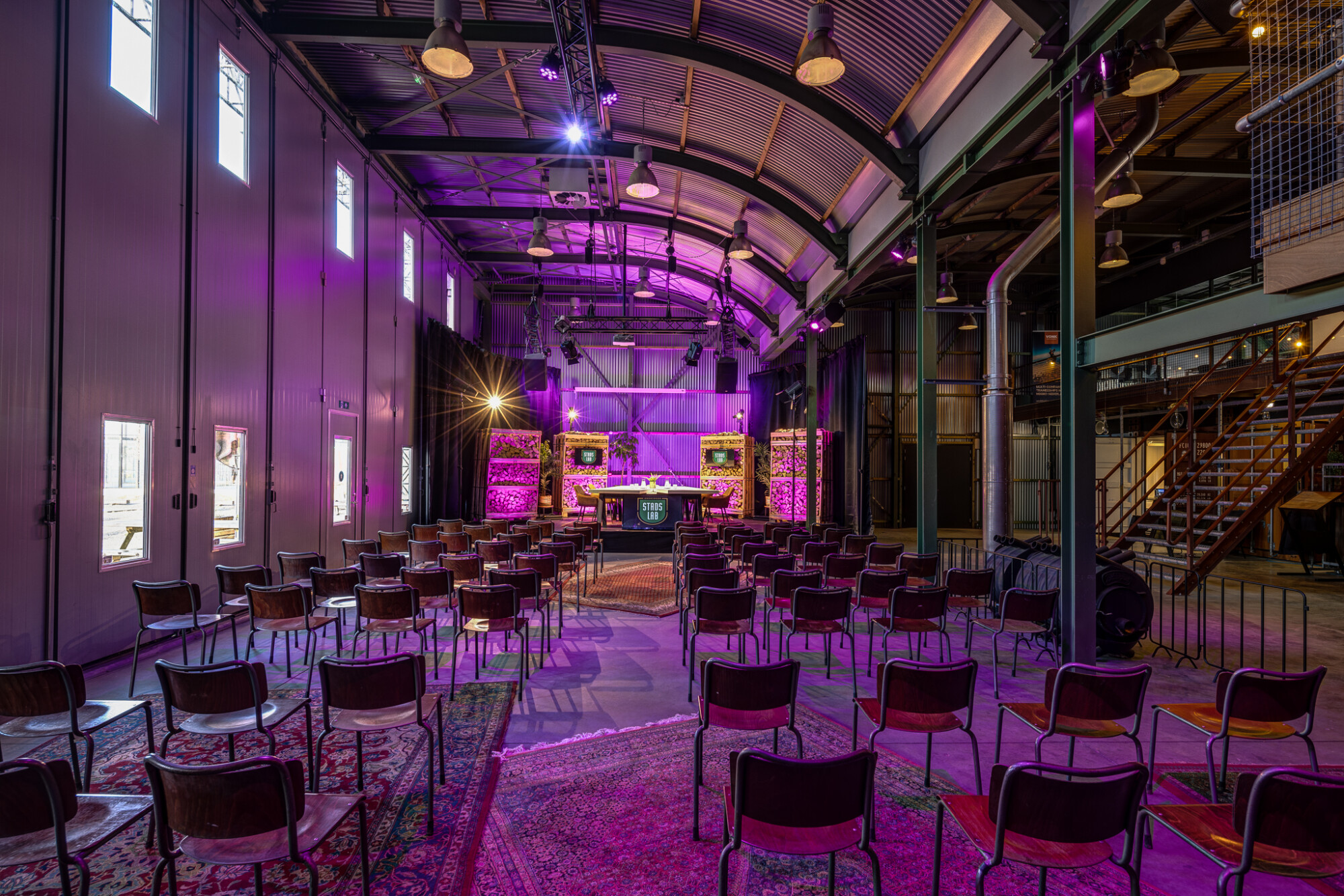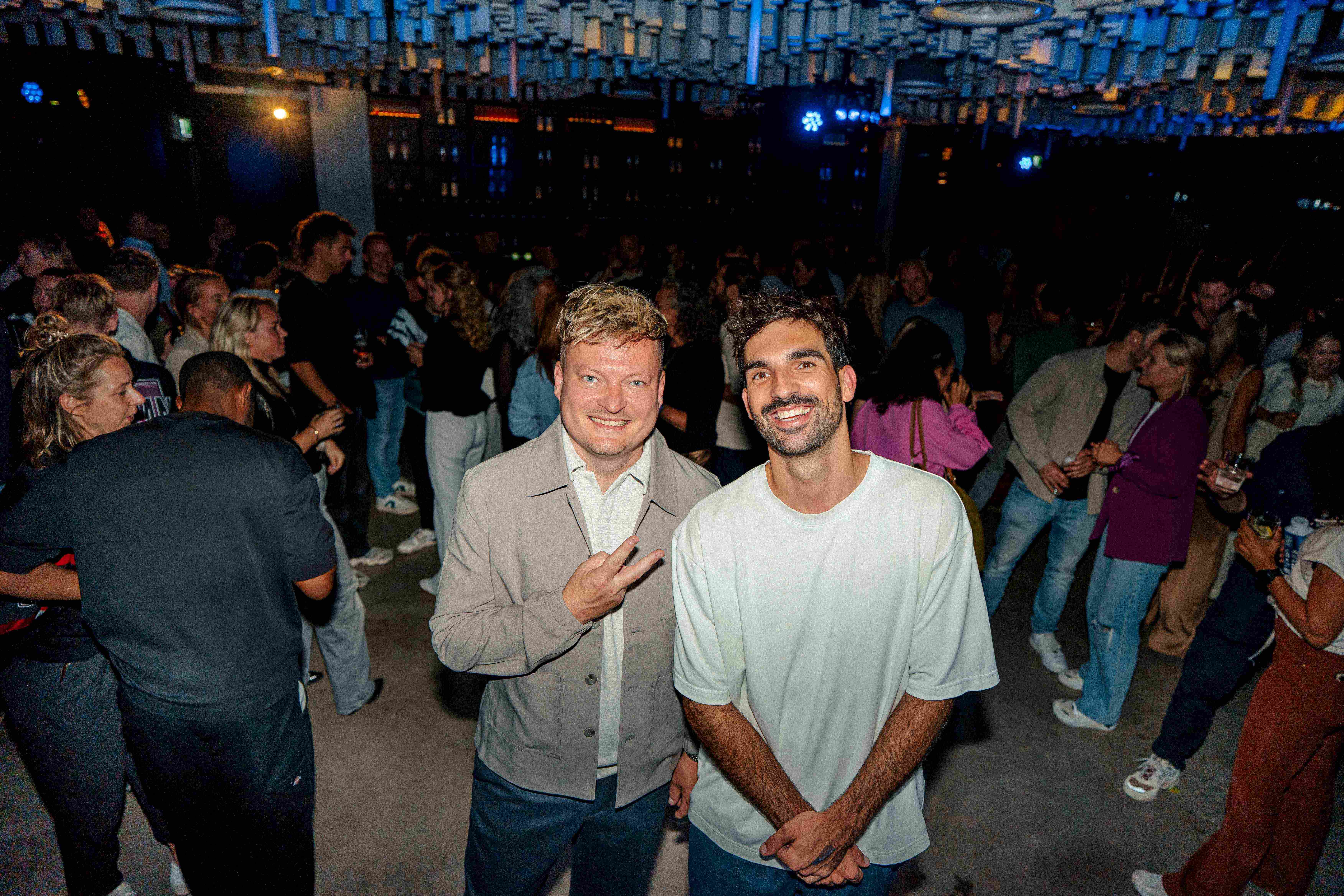
Stadsschouwburg
The Stadsschouwburg at Turfsingel 86 in the city of Groningen is the most important theater in the Dutch province of Groningen. Check the upcoming events.
Artists from home and abroad feel at home there, partly because the audience sits so close to the stage.
The building has been a national monument since 1994.
The entrance is cozy and at the start of each performance there is plenty of chatting in front of the building and in the lobby with garderobe.
There are stairs on both the left and right to go up to the bar for a coffee or a glass of wine. After premieres the artists mix amongst their visitors for a drink in the basement bar. Cosy with many alcove seating areas and a good bar!
Through out the week and in the weekends there is theater, music, cabaret, musicals and modern dance going on here. Tickets to be bought at Spot Groningen. This is a website that sells tickets for Stadsschouwburg Groningen and for Oosterpoort Groningen.
How it all started with the architects some years ago....
The design
In 1874, the architects Van Gendt and Vogel published for a second time in De Opmerker about the Groningen theater design. The design was based on an earlier design by these gentlemen for a theater in Arnhem from 1863.
Like most nineteenth-century examples, it was a box-type theatre, with a ground floor and horseshoe-shaped balconies with boxes oriented towards the stage.
Cuts
The stage opening was emphasized by a richly decorated frame and was flanked by boxes with small balconies included in that frame. In order to save high costs, the Stadsschouwburg was built almost entirely traditionally, using brick and wood and only very limited use of 'modern' materials such as cast iron, steel and concrete. Significant cuts were also made in fire resistance, despite numerous fires in theaters in Europe just before construction in Groningen.
Costs
During the entire preparation for construction, there was bickering about too high costs and significant cuts were made in the design. Among other things, an elevated stage tower, the installation of electricity and other modern facilities were omitted. Furthermore, many necessary service and storage spaces were missing. After the completion of the theater, the building soon had to undergo all kinds of adjustments and extensions to make and keep it usable. The building could be put into festive use on October 8, 1883. The Stadsschouwburg quickly conquered a permanent place in Groningen's cultural nightlife.
Improvements
Over time, continuous expansions and 'improvements' took place in the Stadsschouwburg. In 1888-1889, set storages were added (the later Kruithuis). Heating and ventilation were installed in 1891. Offices were added in 1905.
Between 1924 and 1928 a lot of maintenance was carried out on the interior: especially the painting, the wallpaper of the foyer and the upholstery were tackled. This was followed by the crisis and the occupation by the Germans during the Second World War. Immediately after the war, discussion arose about a possible new theater and concert hall on the Grote Markt. However, this new construction was not built due to the interests of Monumentenzorg and the high construction costs.
Between 1950 and 1956, the front of the Stadsschouwburg was gradually modernized and expanded with a new entrance, cash register and loft, new furniture, the construction of offices, a new seating plan for the theater hall including architectural adjustments and many other adjustments.
Noord Nederlands Toneel
In the 1970s the monumental building almost seemed to be over. It was condemned and closed in 1976, after which demolition was threatened. Many wanted a new, larger Municipal Theater, but there was no political support for this. During the closure, a lot of damage was caused to the hull due to leaks. It was precisely at this time that Groningen had its first professional theater company: from 1981 De Voorziening, continued in 1991 as the Noord Nederlands Toneel.


.jpg)

